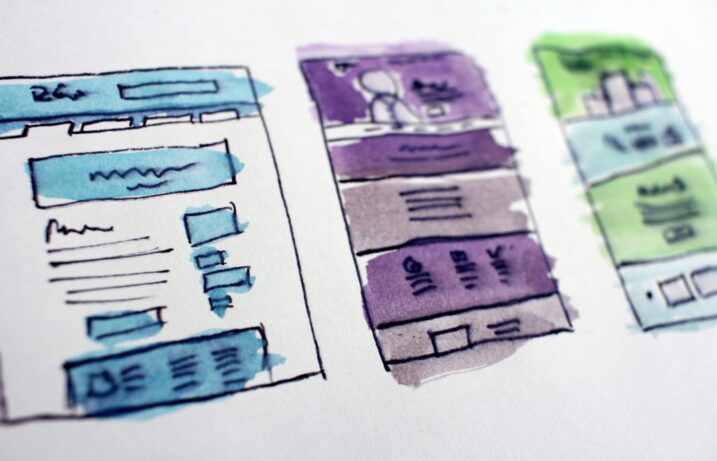What is Design?
Design is a problem-solving tool that allows us to imagine, ideate, and create meaningful experiences. An effective designer has a variety of unique skills and experiences that allow them to solve some of the most ambiguous problems.
Whether you’re an aspiring, new or experienced designer, your past educational focus and work experience is incredibly valuable and will give you an edge in how you approach design. Every professional experience you’ve had has molded your own unique perspective that allows you to think differently and bring something new to the table. In a rapidly changing world―constantly being disrupted by technology―we need all the diversity and creativity we can get.
Designers at Designation come from all walks of life, but all share the same eagerness to leverage their past to learn new skills and change their future.
It’s important to note that a graphic design degree is not the only way to enter the field of digital design.
The following are 4 (of the many) college majors our graduates have come to the program with and why they are so valuable in design:
Psychology
This area of focus is highly relevant to user experience research. In design, you need to be able to understand human behaviors, needs, and motivations. If you studied psychology, you have experience conducting quantitative and qualitative research based on theories. You’ve been primed to already understand key concepts such as Hick’s Law, the psychology of color, or Gestalt principles to name a few. Moreover, you’ve been primed to ask lots of questions. In design, psychology is consistently leveraged to synthesize user research and propose creative solutions to a wide range of problems.
Business/Marketing/Sales
With a business background, a designer has a perspective that future business colleagues will find extraordinarily valuable: the ability to see problems as an opportunity to improve overall business strategy.
Design has gone from a “nice to have” in business to a core function of an organization’s operations. Designers are now sitting in C-suite positions making the critical decisions that affect their product and service offerings. This change has occurred due to the recognition that design thinking yields real financial results. A designer who understands business strategy will be able to more effectively communicate their designs in terms of overall business growth value, thus increasing the likelihood success and buy-in from stakeholders.
Anthropology/Sociology
Similar to psychology, anthropology and sociology are both rooted in understanding human behaviors. The difference is that anthropology focuses on the cultural side of human behavior, and sociology focuses on—you guessed it—the societal side of humans through history and observation. Design is about uncovering pain points that are specific to the needs of the user and coming up with creative solutions to remedy those pain points. As you can imagine, pain points will differ depending on the context of culture and society someone is living within.
If you studied anthropology or sociology, you’re already acutely aware that, for example, a new application designed for transactions will produce a very different response and set of challenges for those who call Nairobi, Kenya home vs. downtown Manhattan. Having societal and cultural knowledge will give you an advantage in understanding the complex set of differences in the needs and motivations of people around the world.
Second Languages for user experience designers
When learning a new language, it’s inevitable that you learn about the culture of those who speak it. Language is so intertwined with a culture that to be fluent is not only about proficiency in grammar and vocabulary, but also a comprehension of culture. Your ability to dive deep into another person’s culture is incredibly useful when diving into a user’s mind to build empathy. In addition, studies have suggested bilingualism improves the capacity for divergent thinking. Divergent thinking is your ability to produce a range of solutions to a given problem in an effort to find one that works. This is an exceptionally useful skill when you are a designer.
User Experience Design Majors
We all have our own strengths and weaknesses. While some designers are incredibly drawn to or gifted in making and creating, others are more focused on researching user behavior and interpreting data.
What makes design such an incredible field is that there is room for everyone to focus on their passion and strengths.
If you are analytical and enjoy researching people, there is a home for you in User Experience (UX). If you love to get creative through building visual experiences, you can focus your efforts on User Interface Design (UI). If you are more programmatic and mathematical, you can venture into front-end development. That is not to mention all of the jobs that have a home in-between those lines.
This is why at Designation, we teach both at the beginning of our program. Our graduates are able to see the big picture and connect the dots between UX and UI.




